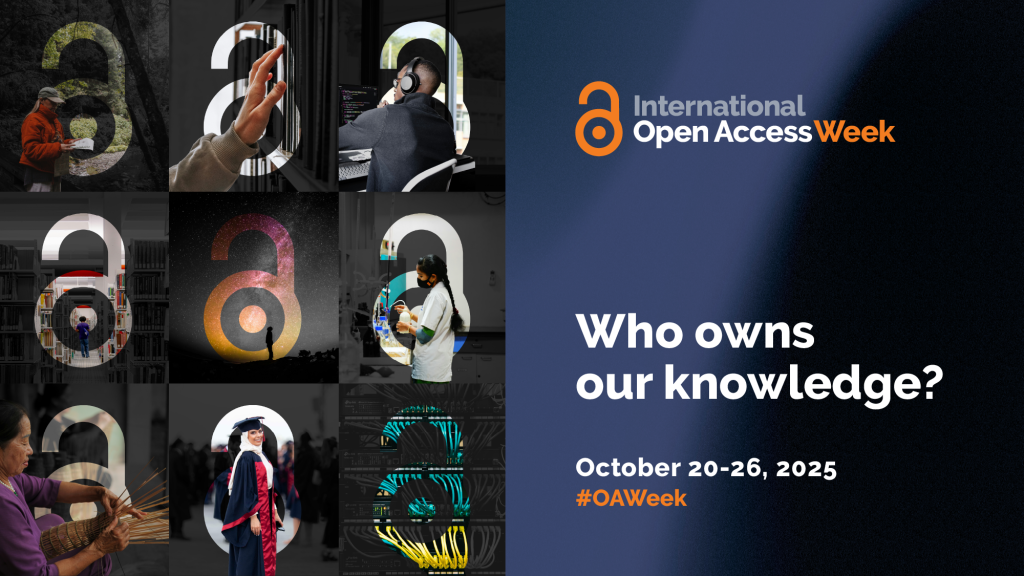By Mahira Hassan and the Open Publishing and Scholarly Communications Team on October 21, 2025
International Open Access Week (October 20-25) 2025 asks us to consider, “Who Owns Our Knowledge?” As Canada’s largest library-based open publisher, the University of Alberta Library takes this question seriously, and our Open Publishing team continues to support academic communities with an open journals program that hosts more than 80 diamond open access (OA) journals. Our journals’ contents are available immediately, free-of-charge to everyone, and contributors retain their copyright in published articles.

As an open publisher, we are committed to a values-based and community-centred approach to journal publishing and are intentional about supporting scholarly communities and modes of expression that have traditionally been marginalized. Some of our journals publish on interdisciplinary subjects and on topics of interest to local, regional, or specialized communities. Their authors may face systemic barriers to publication and at least sixteen of our current journals publish in languages other than English. In contrast to some commercial publishers, our journals retain autonomy over their editorial decision-making, submission and peer review processes, and the structure of their editorial teams and boards. In contrast to typical practices in commercial academic publishing more broadly, authors are not charged processing or publishing fees.
How do diamond open access journals operate if they do not charge any fees?
There are many different models for funding diamond open access journals. Our journals use a few different methods, depending on their size and resources.
All our journals (including student journals) have editorial boards that guide the peer review and publishing process, based on ethical community standards and best practices. Like most editors in both commercial and non-profit scholarly publishing, members of these boards are often employed by post-secondary institutions.
Some journals are also funded through scholarly associations or academic departments, either through direct financial support or through the labour of members.
Journals are also supported by the Library’s Open Publishing team through a wide range of services, including access to technical infrastructure, guidance and training in editorial practices and policies, support for indexing, and preservation processes that enable broad dissemination and long-term access to their published content.
The Library team can also help journals apply for various funding grants and other programs. This includes government grants, as well as opportunities to have works disseminated by scholarly databases that pay a royalty to journals for their contributions.
How do you get involved with and/or support open access publishing?
There are many ways to support diamond open access publishing. You can read and share what’s published; educate others about community-based open publishing; recognize U of A faculty, students, and staff that are involved in open publishing; and advocate for increased institutional support in policy and funding.
If you are a researcher planning for publication, consider diamond open access options, one of the open access options described on the Publishing Open Access section of the Library website.
If you are a faculty member who is looking to work in an editorial capacity or as a peer reviewer, consider a diamond open access journal rather than a commercial one. In this way, your time and labour can help us grow the open scholarly publishing environment.
To get directly involved with our journals, you can reach out to them directly and volunteer, or submit your work. Students can also contribute to or work directly with student journals by serving on editorial boards or as reviewers.
Many thanks to Mahira Hassan and the Open Publishing and Scholarly Communications Teams for co-authoring this post.
This content is licensed under a CC BY-NC-SA 4.0 Creative Commons licence.
